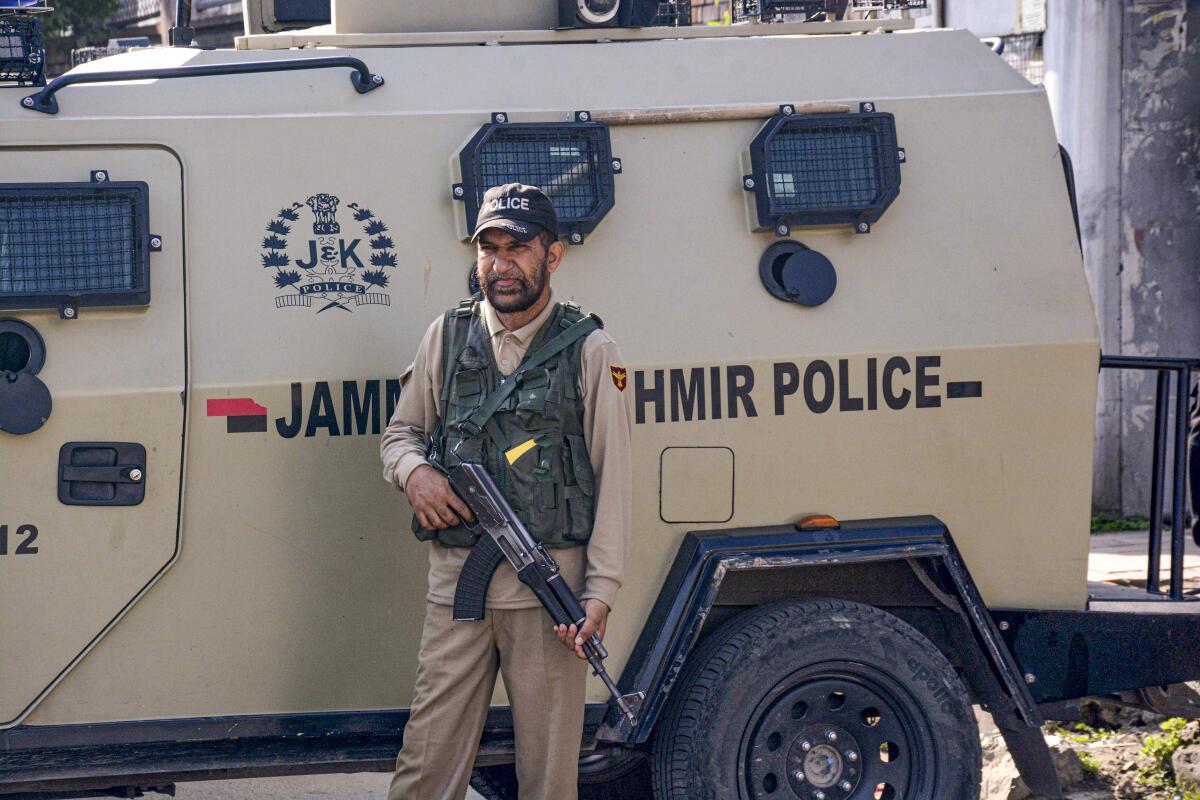At least 26 people including an Indian Navy officer, an Intelligence Bureau (IB) personnel and two foreign tourists were killed after Pakistan linked terrorists opened fire at Baisaran, a popular meadow near the resort town of Pahalgam in Jammu and Kashmir around 3PM on Tuesday (22th April 2025). Reports have emerged that the terrorists checked the victim’s identities and religion before opening fire. Eyewitnesses and survivors claimed that attackers asked tourists to recite Islamic (religious) verses, questioned their names and faith before open firing. In some instances, male victims were reportedly asked to remove their pants/trousers and their private parts were checked to ascertain their faith.
A woman tourist, who survived the carnage, told police in a distress call that the gunmen approached her husband after spotting wedding bangles on her wrists, suspecting them to be Hindu. “He asked my husband’s name and religion. Then he shot him”, she said. Most victims were shot at close range. In a nutshell, this event is another targeted killing of Hindus amid the ongoing turmoil in Jammu & Kashmir. However, there is a much broader picture that can be drawn against the backdrop of this unfortunate event. Both, India and Pakistan have long waged a shadow war using proxies: Pakistan through groups like Lashkar-e-Taiba (LeT), Jaish-e-Mohammed (JeM) and The Resistance Front (TRF) in Kashmir while India, as per Pakistani claims, supports Balochistan Liberation Army (BLA) and other Baloch groups that are designated terror outfits by Pakistan.

While it’s speculative, I find a connection with the unfortunate event of the targeted killing of Hindus by Islamic terrorists in Pahalgam yesterday, which fits within highly recognisable pattern of proxy conflicts and covert retaliatory attacks that have long characterised India-Pakistan dynamics especially around Kashmir and Balochistan. The connection forms in such a way that the Pahalgam attack, perpetrated by militants of the Pakistan-linked terror outfit The Resistance Front (TRF), is directly a predecessor to the Jaffar Express hijacking (11th March 2025), which was carried out by militants of the Balochistan Liberation Front (BLA), an outfit that Pakistan claims has links with India.
While the Pahalgam attack comes against the backdrop of the recent Waqf (Amendment) Bill and, years earlier, the abrogation of Article 370 — both of which may serve as plausible motives — the broader picture is quite different. In this article I have discussed about the broader picture, the terror outfits involved, linking the chain of proxy conflicts (the broader picture linking Pahalgam with Jaffar Express hijack) and ending with a need for revision of India’s counterterrorism strategy.

The Resistance Front (TRF): Perpetrators of the Pahalgam Attack

All the views and opinions expressed are those of the author. Image Credit: The Hindu.
About the Author
Anirudh Phadke is the Founder, Publisher & Editor of The Viyug and The Phadke Journals. He is currently serving as a Member of the Board of Studies (BoS) for the Department of Defence & Strategic Studies at the Guru Nanak College (Autonomous). He previously worked for International Criminal Police Organization (INTERPOL). Anirudh holds a Master of Science in Strategic Studies along with a Certificate in Terrorism Studies from S. Rajaratnam School of International Studies (RSIS) at Nanyang Technological University (NTU). He completed Bachelor’s degree in Defence & Strategic Studies from Guru Nanak College (Autonomous).




One thought on “Is the Pahalgam Attack a Retaliation for the Jaffar Express Hijacking?”